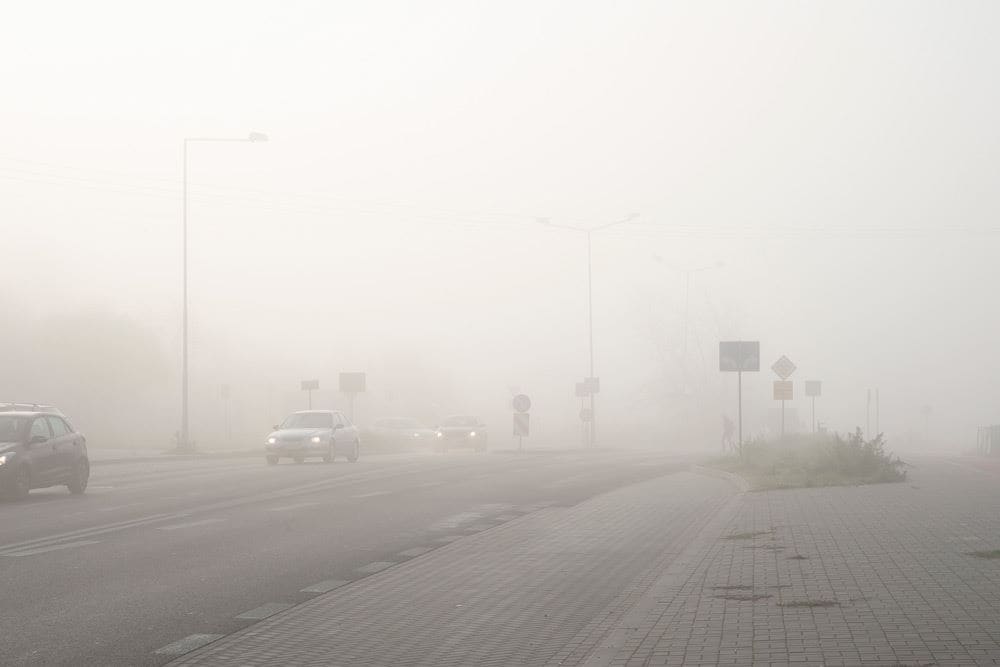Smoke and Air Pollution — How to Stay Healthy This Summer
 Minnesotans have been experiencing higher levels of smoke and air pollution due to ozone pollutants and wildfires in Canada. CentraCare Pulmonary and Critical Care Physicians Ramakanth Pata, MD, and Timothy Ehle, MD, are weighing in on what people should know to keep themselves healthy this summer.
Minnesotans have been experiencing higher levels of smoke and air pollution due to ozone pollutants and wildfires in Canada. CentraCare Pulmonary and Critical Care Physicians Ramakanth Pata, MD, and Timothy Ehle, MD, are weighing in on what people should know to keep themselves healthy this summer.
Many people are wondering if it's safe to be active outside. According to Dr. Ehle, it depends. "The answer to this is entirely dependent upon the current air quality index (AQI) which ranges from good to hazardous. Being active outside would not be advisable for anyone when the index is above 151 with a lower threshold of 101 for sensitive individuals.
There are a few reliable ways to check the local AQI. The first way is using the weather app on a smart device. Look under Air Quality. It gives a number and color codes. If it's green and less than 50, it is acceptable quality. Greater than 150 is coded red and is considered unhealthy. The second way to check local AQI is at Airnow.gov. Enter your ZIP code to see information for that area.
The most at-risk populations include people with chronic respiratory or cardiovascular issues.
"Children, older adults, people with lung diseases such as asthma, chronic obstructive pulmonary disease (COPD), emphysema, bronchitis and pregnant women are also susceptible to both ozone and particulate matter," said Dr. Pata. "There are few people who are very sensitive even if the air quality is less than 100.
Most healthy individuals will only experience mild short-term symptoms like itchy red eyes, nasal congestion, post-nasal drainage, cough, sore throat and headache. People in the at-risk category could experience more severe symptoms.
"It's possible they could experience a significant worsening in their chronic diseases, for example, acute asthma or COPD exacerbations," Dr. Ehle outlined. "Some people may be more prone to developing symptoms than others … sometimes this may be life-threatening, even requiring a breathing tube. In addition, it may increase the risk of pneumonia, by damaging the protective mucociliary clearance (the major barrier against infection)."
Repeated or prolonged exposures can have long-term consequences. Some people who are sensitive may get inflammation of the lungs referred to as pneumonitis and may result in scarring. New-onset asthma has also been seen with exposure to ozone.
In general, lung function may decline faster on prolonged exposure. Significant exposure to particulate matter has been reported to cause irregular heart rhythms and even heart attacks in addition to the respiratory symptoms described above.
Wildfire smoke exposure during pregnancy may increase the risk of preterm birth and lower birth weight. These risks are generally with long-term exposure as would be seen in urban areas where smog is a large contributor to poor air quality.
"Hopefully, the wildfire smoke exposure in Minnesota is transient. However, climate change is increasing the frequency and severity of wildfires, so this may be something we have to get used to," expressed Dr. Ehle.
If you work outdoors or must be outside for any reason when AQI is 151 or above, keep activities short or choose a less strenuous activity (e.g., walking instead of jogging or running).
If you are sensitive, it may be reasonable to move all activities indoors if possible. If the pollution is high, even the air quality indoors could get affected. HEPA filters can help minimize the pollutants.
Communicate with your employer, especially if you belong to a vulnerable group.
"Employers have a responsibility to provide a safe working environment," said Dr. Pata. "Take breaks, especially in an area with an air conditioner where the air is cleaner."
If employers are not able or willing to make accommodations, then wearing a respirator (N95 and above) can provide a degree of protection.
"These are difficult because they only work well when the fit is good," said Dr. Ehle. "In the hospital, we are fit-tested for our N95s to ensure a good seal to provide adequate protection against airborne pathogens. Commercial N95s are unlikely to have a similarly good fit and as a result less effective in filtering fine particulate."
If you notice any of the symptoms mentioned above, it is important to avoid further exposure and consult your health care professional.